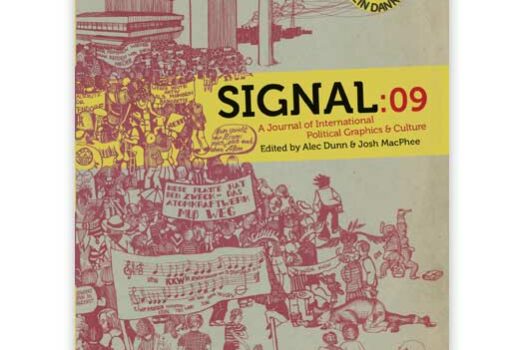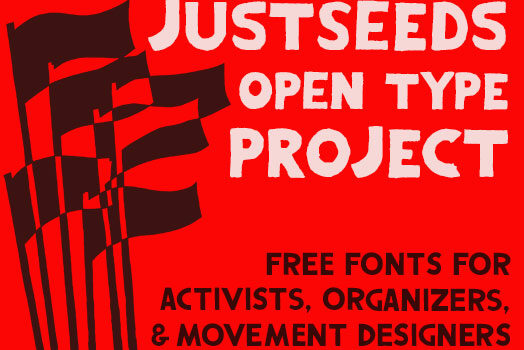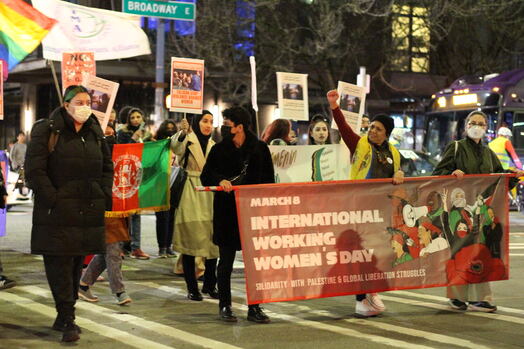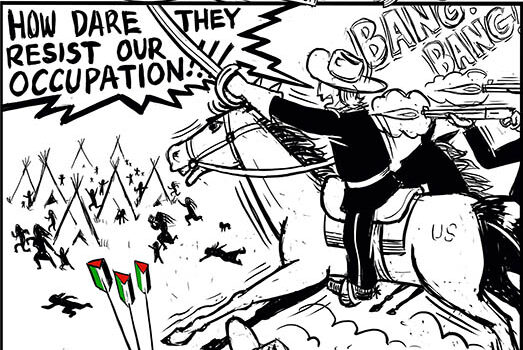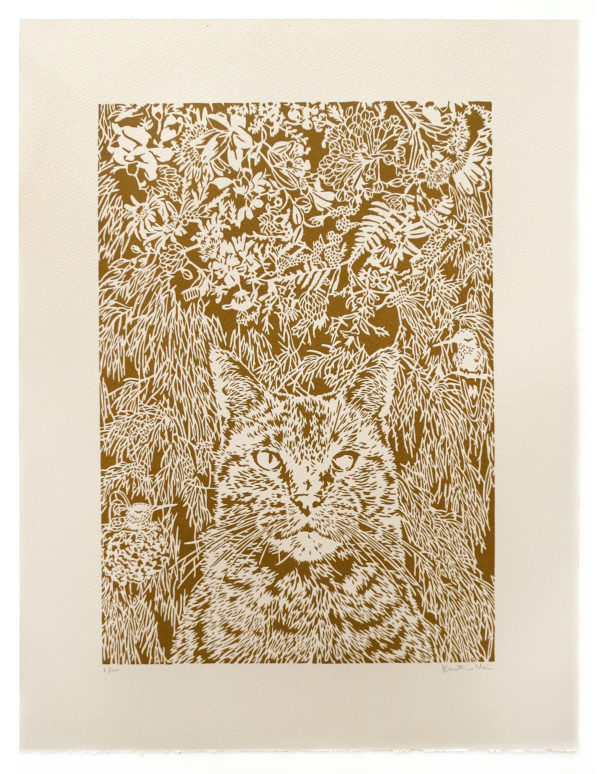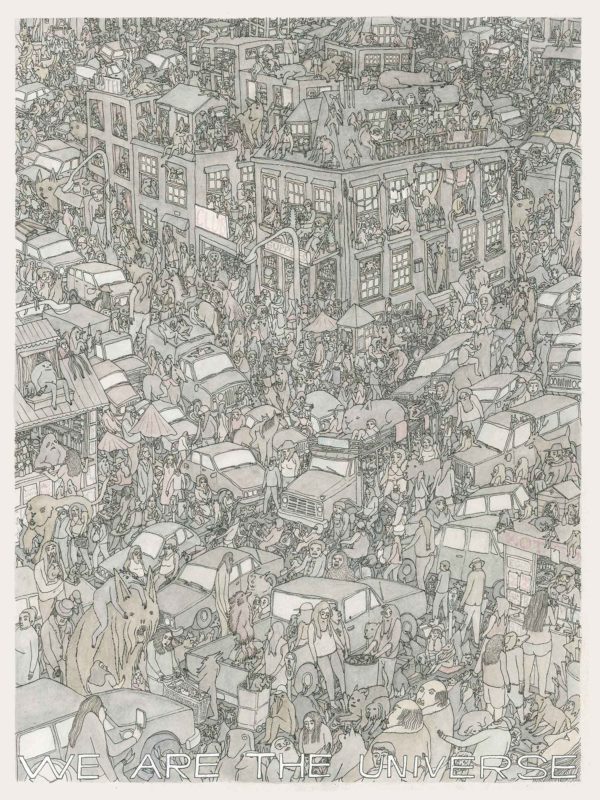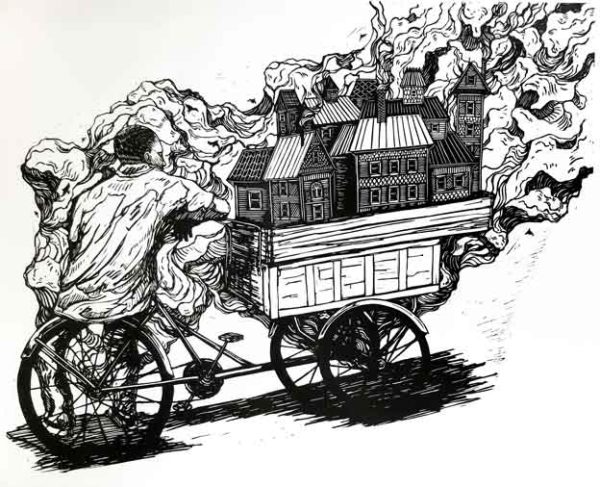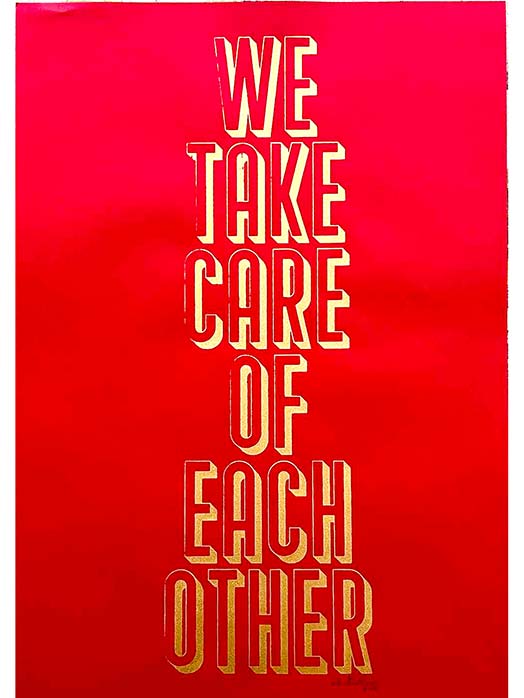
Our public dialogue is anemic. The Right has hijacked the pulpits. Public relations speech and imagery are the order of the day. Public policy is sold the same way as cheap goods at Wal-Mart, with no regard for their quality or utility, or our need for them, but only to move product and contribute to the grosses of the grossest….
152 artists were given an opportunity to show a small piece of work. Each and every one of them, individually, made a decision not to be political, social, religions or scientific…. the artists abdicated. Universally.
No czar or commissar told them to, no corporate sponsor paid them to, nobody from Homeland Security came around and hinted that they would be taking names, no influential critic said the age of relevance is dead, no greedy gallery owner said I can’t sell anything with a political or social theme.
No doubt he’s painting with a broad brush here, but his frustration is familiar. Vallen’s response, however, transcends the political/apolitical dichotomy Beinhart sets up by arguing that all art is political, whether the artist knows it or not:
Beinhart falls into the trap apolitical intellectuals in the art world often find themselves ensnared in; the notion that art is somehow beyond or removed from politics — and that it only becomes political when artists make a concerted effort to make it so. For most people “political art” conjures up visions of clichéd Bush-bashing posters, works effortlessly categorized as propagandistic, easily separated from the mainstream — and so dismissed without difficulty. It is a label given to a small number of works with a perceived or overt left/liberal bias, and as such, a categorization that deflects identifying the political workings and tendencies of the status quo and its attendant cultural institutions. The term “political art” is never used to describe the works of a David Hockney or Ed Ruscha, and the dominant cultural establishment that backs such artists is on no account referred to as “political” — though it clearly is.
Vallen is making the case that “establishment” art is by virtue of its position conservative. (The history of CIA support for abstract expressionism would seem to back him up on this point).
In a related essay he makes a different point, asking if the “transcendent qualities of art” places it “above the corrupt world of politics and the vulgar materialism of society.” All three essays are worth reading in full. I don’t have any grand pronouncements here; I think I tend to support Vallen’s argument, but I default to Beinhart’s when I’m feeling frustrated with the state of the world, the art scene, and my own efforts.
Generally speaking though, Vallen’s two arguments — that all culture is political and that art can transcend conventional politics — are pretty much my starting points for thinking about art, politics, commerce, advertising, freedom, hope, and all the rest. I’d like to hear what people think; drop us a line or leave a note in the comments.
Image at top: Dia de los Muertos (Day of the Dead) by Mark Vallen.
